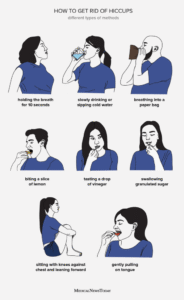PCOS and Anti-Müllerian Hormone
Understanding the Link Between PCOS and Anti-Müllerian Hormone (AMH)
Estimated Reading Time: 5 Minutes
Polycystic Ovary Syndrome (PCOS) is a complex hormonal condition that can affect a woman’s menstrual cycle, fertility, and hormone levels. One of the key markers used to assess ovarian function and aid in diagnosing PCOS is the Anti-Müllerian Hormone (AMH). This hormone is secreted by ovarian follicles and provides insight into a woman’s ovarian reserve and reproductive health.
What Is Anti-Müllerian Hormone (AMH)?
Anti-Müllerian Hormone is produced by small ovarian follicles known as antral follicles. These follicles are in a resting phase but have the potential to mature and release an egg during ovulation. The amount of AMH in a woman’s blood reflects the number of these antral follicles present.
AMH and Ovarian Reserve: What It Means
The term ovarian reserve refers to the number of viable eggs a woman has at a given time. Since AMH levels directly correspond to the number of antral follicles, they offer a reliable estimate of ovarian reserve. For women undergoing fertility treatments like in vitro fertilization (IVF), knowing their AMH levels helps predict how their ovaries may respond to stimulation.
How AMH Reflects Follicle Count
High AMH levels indicate a larger pool of antral follicles. While this might seem beneficial, excessively high levels can also signal hormonal imbalances, including those found in PCOS. Conversely, low AMH levels may suggest a diminished ovarian reserve, often linked to aging or reproductive health issues.
PCOS and Elevated AMH Levels
Women with PCOS typically have more antral follicles than average, resulting in elevated AMH levels. This surplus of follicles can interrupt the normal ovulation process. In a typical menstrual cycle, AMH helps regulate follicle development. However, when AMH levels are too high, it can suppress follicle maturation and prevent ovulation entirely.
Why High AMH Levels May Hinder Ovulation
When AMH levels exceed the normal range, they act as a brake, stopping follicles from progressing to the point of releasing a mature egg. This dysfunction contributes to irregular or absent menstrual cycles—hallmark signs of PCOS—even in women who do not show obvious symptoms.
How AMH Testing Works
AMH can be measured with a simple blood test, and the timing of the test is flexible—it can be done on any day of the menstrual cycle. Results are analyzed in relation to the individual’s age and reproductive goals. While a high AMH level alone isn’t enough to diagnose PCOS, it adds an important piece to the diagnostic puzzle.
AMH as a Diagnostic Tool for PCOS
AMH testing is particularly helpful in identifying PCOS in women over 35, where traditional symptoms may be less apparent. To confirm a PCOS diagnosis, at least two of the following must typically be present:
-
Irregular or absent periods (oligomenorrhea)
-
An ultrasound showing multiple ovarian cysts
-
Elevated levels of androgens, either in bloodwork or through symptoms like acne or excess facial/body hair
AMH levels serve as a supplemental indicator, especially when standard diagnostic markers are inconclusive.
The Relationship Between AMH and PCOS Severity
Among women already diagnosed with PCOS, higher AMH levels are often associated with more severe symptoms. These may include more intense hormonal imbalances, increased difficulty with ovulation, and greater challenges in achieving pregnancy.
Final Thoughts on AMH and PCOS
Anti-Müllerian Hormone offers a valuable glimpse into ovarian health. For women struggling with fertility or showing symptoms of PCOS, measuring AMH can assist in diagnosis and inform treatment plans. Since PCOS is a condition with a wide spectrum of symptoms, early testing and monitoring of AMH levels can support better reproductive health management.
Should You See a Specialist for PCOS?
If you’re over 35 or experience irregular menstrual cycles, it might be time to talk with a healthcare provider. AMH testing can be a useful tool in understanding your hormonal profile and determining whether PCOS could be impacting your health.
💡 Frequently Asked Questions
Should I Consult a Specialist for PCOS?
We’re preparing a detailed answer to this frequently asked question. Stay tuned for expert guidance.
⭐ Expert Tips
-
Adjust your diet seasonally to manage PCOS symptoms naturally.
-
Use hormone-friendly meal planning to support your reproductive health.
-
Consider time-saving cooking techniques for busy lifestyles.
✅ Key Takeaways
-
AMH is a useful indicator of ovarian reserve and fertility potential.
-
High AMH levels may suggest PCOS, even in the absence of classic symptoms.
-
Testing AMH can guide both diagnosis and treatment strategies, especially for women over 35.
📣 Join Our Health & Wellness Community
Get weekly insights on women’s health, fertility tips, and hormone wellness directly to your inbox.
Subscribe now for trusted, research-backed content.







